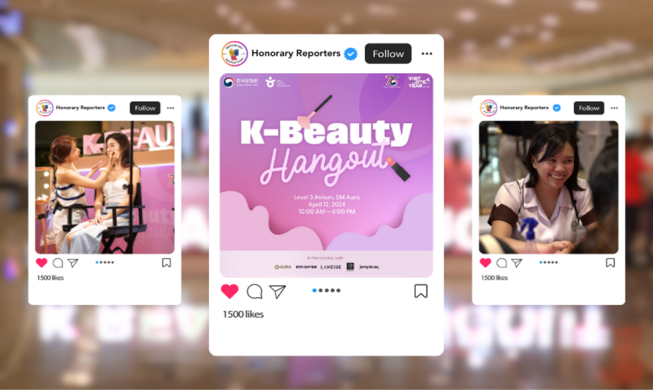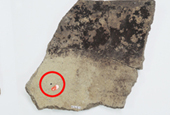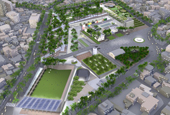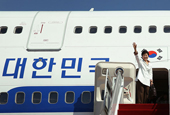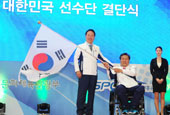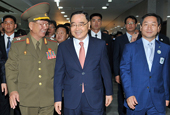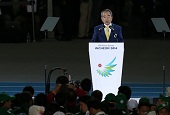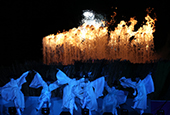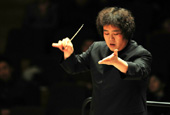-
 Korea.net's 24-hour YouTube channel
Korea.net's 24-hour YouTube channel- NEWS FOCUS
- ABOUT KOREA
- EVENTS
- RESOURCES
- GOVERNMENT
- ABOUT US
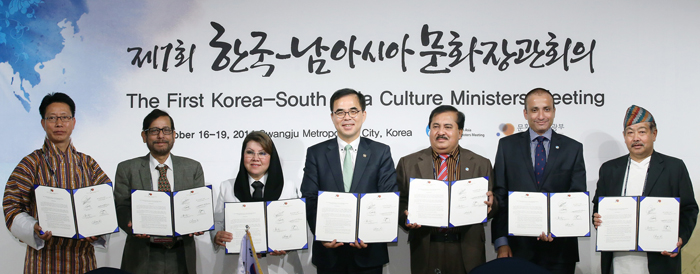
Representatives taking part in the first Korea-South Asia Culture Ministers Meeting pose for a photo after adopting the Gwangju Declaration at the Gwangju Museum of Art, part of the Asia Culture Complex, on October 18. Participants include (from left) Bhutanese Minister of Home and Cultural Affairs Damcho Dorji, Bangladeshi Minister of Cultural Affairs Asaduzzaman Noor, Afghani Deputy Minister of Information and Culture Simin Hassanzada, Korean Vice Minister of Culture, Sports and Tourism Kim Chong, Sri Lankan Minister of Culture and the Arts T.B. Ekanayake, Pakistani Parliamentary Secretary of Information, Broadcasting and National Heritage Mohsin Nawaz Ranjha and Nepalese Ambassador to Korea Kaman Singh Lama.
Korean Vice Minister of Culture, Sports and Tourism Kim Chong gave the opening speech, representing the host country at the first Korea-South Asia Culture Ministers Meeting. The meeting was held at the Gwangju Museum of Art on the morning of October 18.
"Korea and South Asia have maintained good neighborly relations, as seen by our long-standing history of cultural exchanges along sea routes," Kim said. "In the 8th century, Hyecho, a Buddhist monk of the ancient kingdom of Silla, visited South Asia by sea, and Korean culture came under the huge influence of Buddhism, which originated in South Asia."
"The Korean government is willing to build bridges of dynamic prosperity and to promote cross-border exchanges across Asia, thereby seriously seeking ways to contribute to the international community while preserving the diversity of Asian values," Kim continued. "We plan to share our experiences of cultural heritage preservation and technical know-how in the cultural industries, while proceeding with an official development assistance (ODA) program in the cultural sector for the common progress of Korea and South Asia."

The first Korea-South Asia Culture Ministers Meeting is held at the Gwangju Museum of Art on October 18.
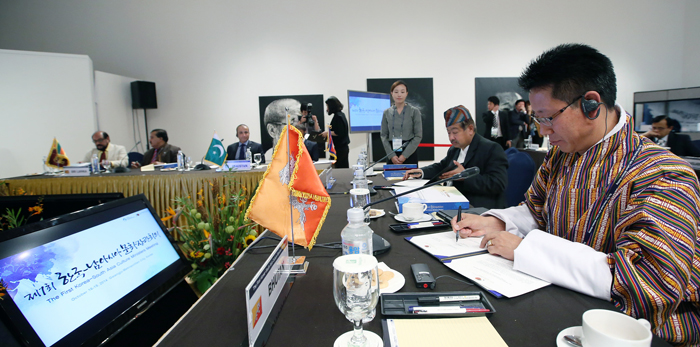
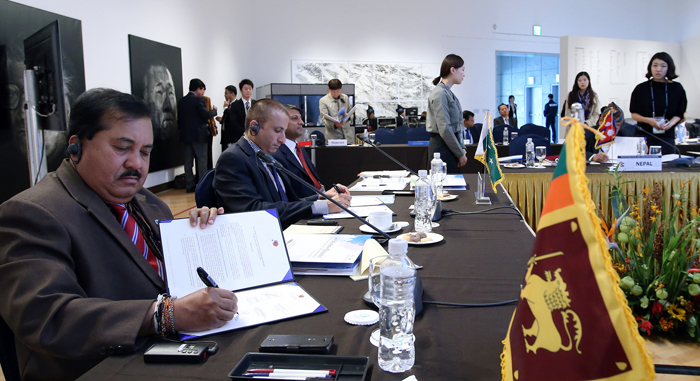
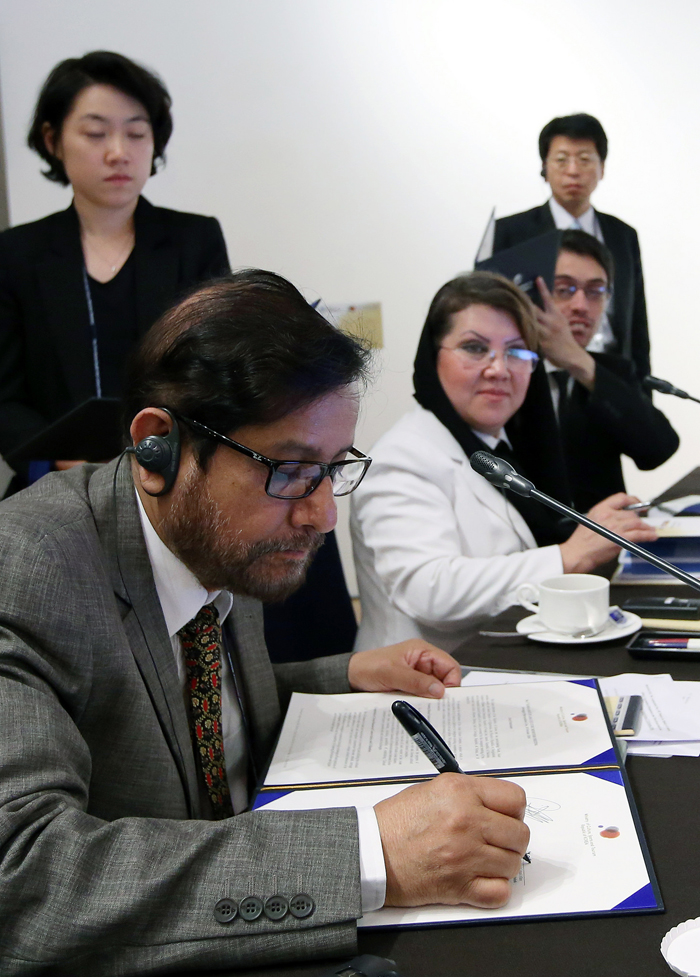
Participants in the first Korea-South Asia Culture Ministers Meeting sign the joint statement adopted at the meeting.
"As a country with a 5,000-year background of cultural and historical heritage, Afghanistan is in dire need of the international community's cooperation on the reconstruction and repairing of ancient monuments," said Afghani Deputy Minister of Information and Culture Simin Hassanzada. "Cooperation could be eased by providing the required materials and equipment, training workers and sending professional and skilled individuals. All of this can help us achieve our cultural targets."
"I would like to spend a few moments talking about what has been done so far to convert our rich heritage of cultural creativity into a creative industry," said Bangladeshi Minister of Culture Affairs Asaduzzaman Noor. "We will further strengthen our cultural relations through this new initiative from Korea, the Asian Cultural Complex."
"Culture can help unify, integrate and build harmony and social cohesiveness, while providing society with the capability to internalize change within tradition. Culture also has a role to play in furthering economic prospects by promoting the cultural industries, in addition to tourism, which hold great promise and potential to revitalize the communities, to create employment opportunities and to reduce poverty," said Bhutanese Minister of Home and Cultural Affairs Damcho Dorji. "Bhutan seeks to strengthen collaboration and cooperation in the field of culture with Korea and other South Asian nations and use culture as a medium to unify, integrate and build harmony and social cohesiveness, all while providing society with the capability to internalize change within traditions."
"South Asia, home to more than one and a half billion people, is one of the more wonderful places in the world where you can see the mosaic of cultural diversity," said Nepalese Ambassador to Korea Kaman Singh Lama. "Some of the precious dialects and cultural heritages of our underprivileged ethnic communities are at the verge of extinction due to our own neglect or inability to protect them, due to various reasons. Most of our cultural as well as our natural heritage in Asia and the Pacific region have been continually hit hard by either natural disasters or manmade threats to their existence."
"Seeking to contribute to the preservation and promotion of cultural heritage in Asia and the Pacific region is itself a noble initiation undertaken by Korea," said the ambassador. "Its willingness to significantly contribute to the progress of the South Asian Association for Regional Cooperation (SAARC) process, as a member with observer status, deserves appreciation. I believe hosting this cultural ministers' meeting expresses Korea's intent to this end."
"Cultural diversity is a true source of innovation, inspiration and progress for human society," said Pakistani Parliamentary Secretary of Information, Broadcasting and National Heritage Mohsin Nawaz Ranjha. "Respect for and the promotion of cultural diversity together with dialogue among civilizations will provide fresh impetus to the development of relations between SAARC member states and Korea."
"The Asian Culture Complex in Gwangju could provide the opportunity to SAARC member states to interact and get acquainted with each other's cultures. Pakistan looks forward to support from Korea in establishing a Pakistan Culture Center in the complex, to further strengthen cooperation in the field."
"Let us work together as a region to preserve the rich traditions of culture that we share and aim toward cultural integration that will further bind and enhance the economic and social relationships that our countries have built," said Sri Lankan Minister of Art and Cultural Affairs T. B. Ekanayake.
After making their opening remarks, representatives adopted their agenda and held free discussions. In the joint statement, they said they would promote mutual understanding between Korea and South Asian countries, encourage cooperation on cultural resource conservation and utilization, and plan the development of human resources for culture and heritage experts. They also agreed to hold a Korea-South Asia Culture Ministers Meeting on a regular basis.
After the meeting, Asia Culture Hub City Preparation Committee Chairman Kim Seong-il said, "Culture ministers from Korea and South Asia have agreed to cooperate on using the Asian Culture Complex being built in Korea as a venue for the mutual understanding between the peoples of South Asia, for the preservation of cultural heritage, for the utilization of the heritage, to strengthen all areas of culture and the arts and promotion of joint creation and production."
"I hope that further cooperation and cultural exchanges could lead to expanded exchanges in all areas, including politics, business and society, between Korea and South Asia," said Kim. "By regularly holding ministers' meetings, we promise to discuss and find practical policy agendas and future oriented visions through expanded cultural cooperation and exchange, not only between Korea and South Asia but also among all Asian nations."
"Ministers from the participating nations agreed to hold working level meetings of culture ministry directors general in a bid to implement the agreements," said Kim. "We also agreed to hold the next meeting in Gwangju, once the Asian Culture Complex opens next year."
"Next year, 25 Asian nations will take part in a culture ministers' meeting," he said. "I hope that various kinds of Asian culture will be introduced with the establishment of the Asian Culture Complex. We also agreed to continue to cooperate on this matter."
"Each Asian nation sympathizes with the Asian Culture Complex project and hopes that the complex plays a role in preserving and spreading Asian cultures," said Kim. "The ministers' meeting will officially strengthen cooperation projects and cooperation on actual programs."
Wi Tack-whan, Limb Jae-un
Korea.net staff Writers
Photos: Jeon Han
whan23@korea.kr
Related Contents
Most popular
- First hearing-impaired K-pop act hopes for 'barrier-free world'
- Event 'K-Beauty Hang Out' draws hundreds in Philippines
- Ceremony in Seoul inducts 2,641 content creators of Korean culture
- 'Mad Max' director impressed by 'cinema-literate' Korean viewers
- Romanian presidential couple visits national cemetery




